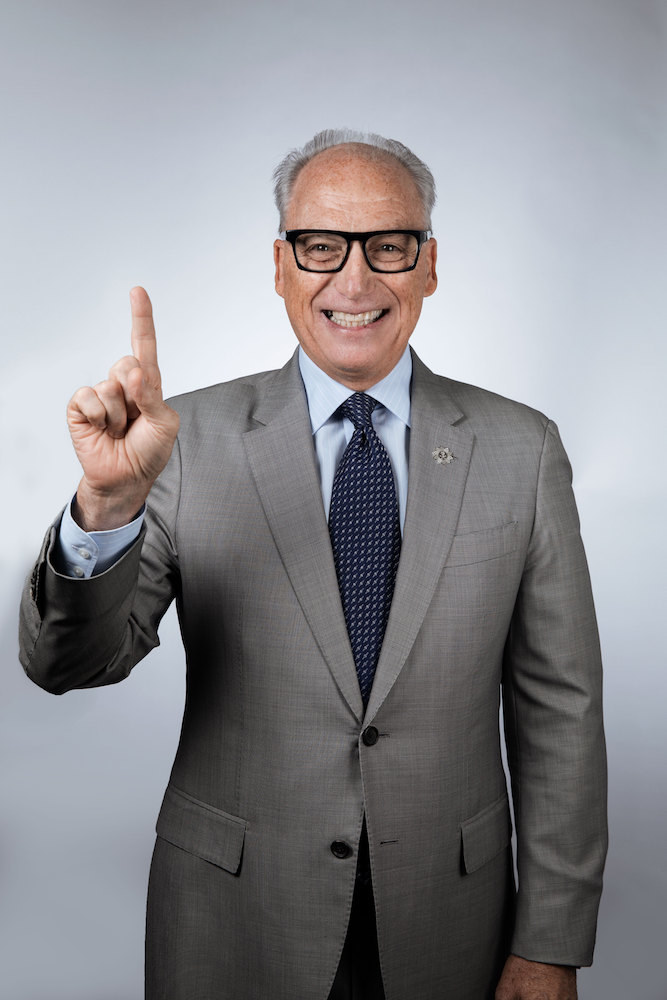RIYADH: Jerry Inzerillo might just be walking proof of the adage: “You can take the boy out of Brooklyn, but you can’t take Brooklyn out of the boy.”
Everything about Inzerillo — accent, demeanor, sartorial style, flashing grin and deadpan delivery — screams of his origins in the borough just across the East River from Manhattan.
He is proud of the place that gave him his first taste of the glamor and glitz of the global hotel industry, even if he had to cross the bridge to sample it as a lowly teenage “busboy” in New York’s Gotham Hotel.
He has a lifetime of achievement in the hospitality industry, as was recently recognized by Hotels Magazine which awarded him the title of “corporate hotelier of the year, 2021.”
After a star-studded career across the global hospitality business, Saudi Arabia seems to have given 67-year old Inzerillo a new lease of life.
As Group CEO of the Diriyah Gate Authority, he is in charge of a $50.6 billion project to transform the historic site of the Kingdom’s foundation into a global tourism attraction, on a par with the Parthenon in Athens or the Colosseum in Rome.
He has taken to that challenge with infectious enthusiasm. He sings the project’s praises at every opportunity in forums, interviews and media events, never wasting an opportunity to deliver his punchline: “There’s only one Diriyah.”
In a recent interview, Inzerillo encapsulated the essence of the Diriyah project. “It is the mother city, the principal city, and the birthplace of the Kingdom in the Arabian Peninsula and of the House of Al-Saud,” he said.
But if Diriyah is a uniquely Saudi project, combining heritage and tradition with modern tourism tastes, Inzerillo has given it a global flavor befitting the Kingdom’s ambitions to open up to the world in the Vision 2030 strategy.
His CV is unashamedly cosmopolitan. From the Gotham in Manhattan he went to hotelier training in Las Vegas, then back to New York in one of a series of moves that took him higher up the ladder of the US hotel business.
Jobs in Houston, Dallas and Miami came and went, and he happened to find himself back in New York at a “pivotal moment” in his career in 1990 when he was asked by the mayor to help organize the visit of Nelson Mandela, just out of prison in South Africa, to the city.
Inzerillo became a close personal friend of the African leader, and still likes to show family pictures with Mandela from his contact-rich mobile. He helped plan the new South African president’s inauguration, and moved full time to the country to work with legendary hotelier Sol Kerzner in the extravagant Sun City development.
Ever aware of the links between the hotels business and the world of entertainment and media, Inzerillo followed the Kerzner job with stints at IMG Artists and at the Forbes Travel Guide, where he remains vice chairman, before he was approached by Saudi Arabia for the Diriyah role.
Inzerillo is well aware that the ambitious project is close to the heart of Crown Prince Mohammed bin Salman, who has kept it on track and even increased its budgeting amid the challenges of the COVID-19 pandemic.
He speaks with gratitude and admiration of the crown prince. “He’s the smartest guy in the room,” Inzerillo said recently, comparing him to the master-planners who laid out Paris and Manhattan in the accelerated strategy to implement Vision 2030.
However, Inzerillo is not blind to the challenges of creating a global tourism destination in a country that is home to the Two Holy Mosques, and which prides itself on traditional Islamic culture and mores. He recently related how, in the early days of the Diriyah project, respondents to international sampling would ask some “strange” questions, such as: “Am I allowed to stay in the same hotel room as my wife?”
He believes this ignorance will evaporate once tourists actually start coming to Diriyah. Early visitors have been “astonished at the beauty of the Kingdom, and astonished at the warmth of the Saudi people and how much fun they had.”
Issues such as availability of alcohol or dress codes will pale into insignificance, he believes.
“Now you can go out to restaurants. The same beautiful restaurants you have everywhere, you have in Saudi now, with music, boys, girls, everybody having a good time. You have everything there,” he recently told an interviewer.
Though a favored project, Diriyah is only one of the “giga-projects” underway in the Kingdom under the Vision 2030 banner, and has to contend for resources with others, such as the NEOM development as well as leisure/cultural initiatives, including the Red Sea development and AlUla.
But Inzerillo insists: “They they are not in competition. They’re very intelligently crafted to complement each other,” though he does seem to regard Diriyah as the gateway to the rest of the Kingdom’s leisure and cultural attractions.
“We’re the first born, we’re the favorite son. The other projects are all great, we love them, but there’s only one Diriyah,” he says, in that Brooklyn twang.






























